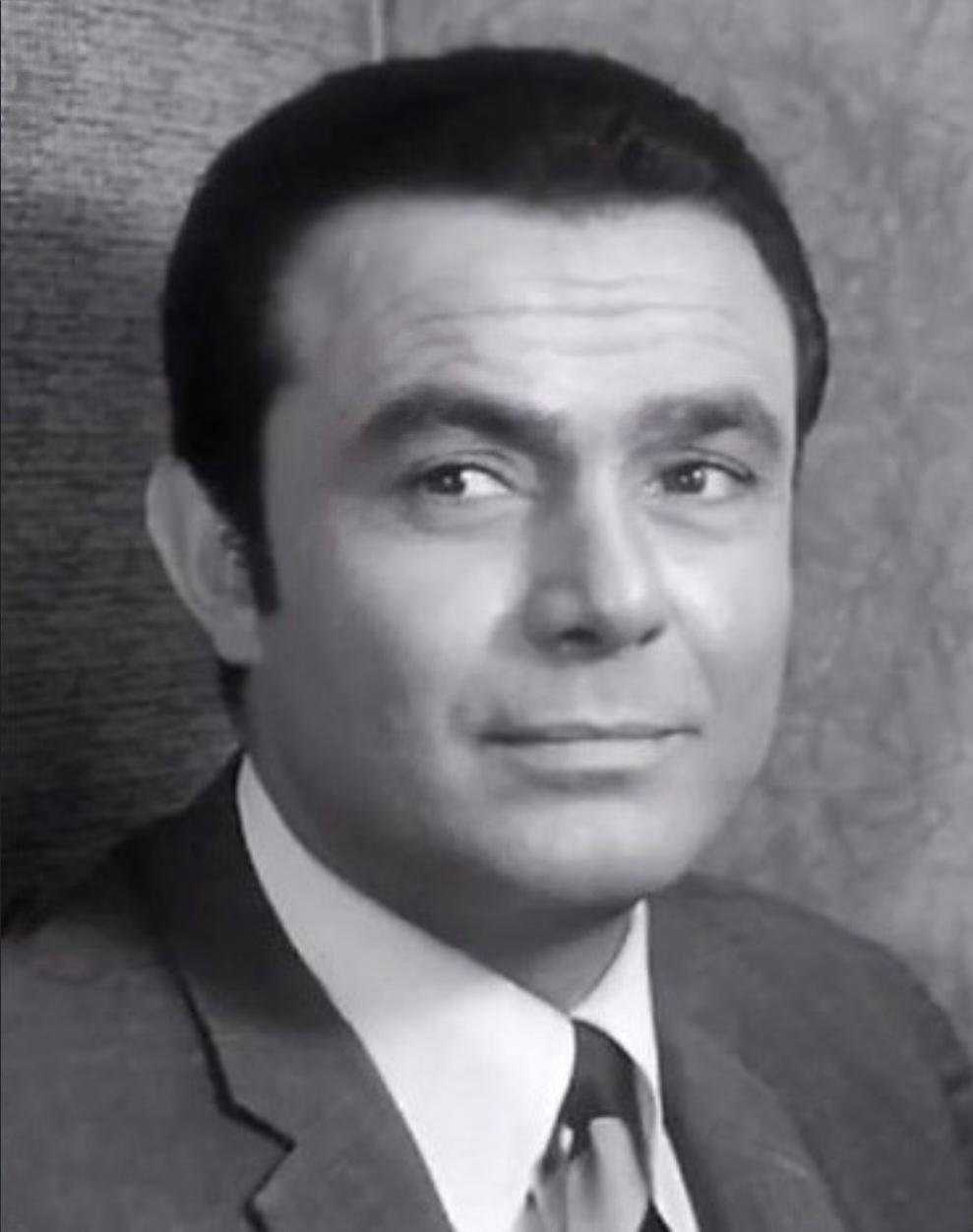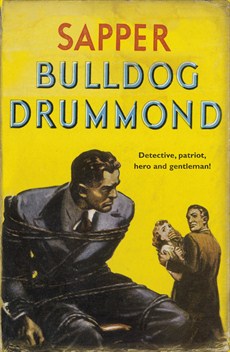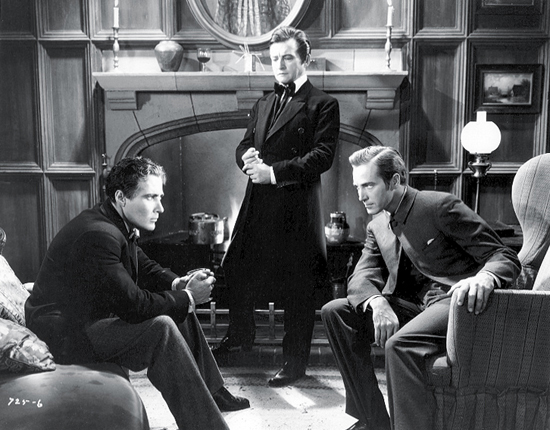|
Heather Angel (actress)
Heather Grace Angel (9 February 1909 – 13 December 1986) was a British actress. She has been known for providing the voice of Mrs. Darling, Wendy's mother in ''Peter Pan'' (1953) and Alice's sister in '' Alice in Wonderland'' (1951). Early life Angel was born 9 February 1909 in Headington, Oxford, England. She was the daughter of Mary Letitia Stock and Andrea Angel, an Oxford University chemistry lecturer and initially a don at Brasenose College and later at Christ Church. They were married in 1904 and, after the wedding, they moved to the Banbury Road. Andrea Angel's maternal grandfather was an Italian refugee and he was named after his uncle Andrea Rabagliati. In the 1911 UK Census, the family is shown as living at 17 Banbury Road, Oxford along with three servants. She was the younger of two sisters. Andrea Angel was killed in the Silvertown explosion in January 1917, and posthumously awarded the Edward Medal (First Class). In his will, he left his wife £374 and shortl ... [...More Info...] [...Related Items...] OR: [Wikipedia] [Google] [Baidu] |
Headington
Headington is an eastern suburb of Oxford, England. It is at the top of Headington Hill overlooking the city in the Thames valley below, and bordering Marston to the north-west, Cowley to the south, and Barton and Risinghurst to the east. The life of the large residential area is centred upon London Road, the main road between London and Oxford. History The site of Headington shows evidence of continued occupation from the Stone Age, as the 2001 field excavations in Barton Lane found, suggesting a date in the 11th century BC. Pottery was found on the Manor Ground, suggesting an Iron Age settlement there in the 7th century BC. Roman kilns from about 300 have been found, including one now on display at the Museum of Oxford. Anglo-Saxon burial remains from about 500 have also been discovered. Headington's toponym is derived from the Old English ''Hedena's dun'', meaning "Hedena's hill", when it was the site of a palace or hunting lodge of the Kings of Mercia. In a charter of 1 ... [...More Info...] [...Related Items...] OR: [Wikipedia] [Google] [Baidu] |
Lifeboat (1944) 1
Lifeboat may refer to: Rescue vessels * Lifeboat (shipboard), a small craft aboard a ship to allow for emergency escape * Lifeboat (rescue), a boat designed for sea rescues * Airborne lifeboat, an air-dropped boat used to save downed airmen Art and entertainment * ''Lifeboat'' (1944 film), a movie directed by Alfred Hitchcock * ''Lifeboat'' (2018 film), a documentary * "Lifeboat" (''Stargate SG-1''), a television episode from the TV series * Lifeboat sketch, a sketch shown on ''Monty Python's Flying Circus'' * ''Lifeboat'', a 1972 album by the Sutherland Brothers * ''Lifeboat'', a 2008 album by Jimmy Herring * "Lifeboats", a song on Snow Patrol's 2008 album, ''A Hundred Million Suns'' * "Lifeboat", a song from '' Heathers: The Musical'' Other uses * ''Lifeboat'', journal of the Royal National Lifeboat Institution * Lifeboat ethics, proposed by Garret Hardin based on the metaphor of a lifeboat * Lifeboat Associates, a software distributor and magazine publisher in the 197 ... [...More Info...] [...Related Items...] OR: [Wikipedia] [Google] [Baidu] |
Raymond Chandler
Raymond Thornton Chandler (July 23, 1888 – March 26, 1959) was an American-British novelist and screenwriter. In 1932, at the age of forty-four, Chandler became a detective fiction writer after losing his job as an oil company executive during the Great Depression. His first short story, " Blackmailers Don't Shoot", was published in 1933 in '' Black Mask,'' a popular pulp magazine. His first novel, ''The Big Sleep'', was published in 1939. In addition to his short stories, Chandler published seven novels during his lifetime (an eighth, in progress at the time of his death, was completed by Robert B. Parker). All but '' Playback'' have been made into motion pictures, some more than once. In the year before his death, he was elected president of the Mystery Writers of America. Chandler had an immense stylistic influence on American popular literature. He is a founder of the hardboiled school of detective fiction, along with Dashiell Hammett, James M. Cain and other ''Black Mask ... [...More Info...] [...Related Items...] OR: [Wikipedia] [Google] [Baidu] |
Leading Lady
A leading actor, leading actress, or simply lead (), plays the role of the protagonist of a film, television show or play. The word ''lead'' may also refer to the largest role in the piece, and ''leading actor'' may refer to a person who typically plays such parts or an actor with a respected body of work. Some actors are typecast as leads, but most play the lead in some performances and supporting or character roles in others. Sometimes there is more than one significant leading role in a dramatic piece, and the actors are said to play ''co-leads''; a large supporting role may be considered a ''secondary lead''. Award nominations for acting often reflect such ambiguities. Therefore, sometimes two actors in the same performance piece are nominated for Best Actor or Best Actress—categories traditionally reserved for leads. For example, in 1935 Clark Gable, Charles Laughton and Franchot Tone were each nominated for the Best Actor Academy Award for ''Mutiny on the Bounty''. The ... [...More Info...] [...Related Items...] OR: [Wikipedia] [Google] [Baidu] |
Suspicion (1941 Film)
''Suspicion'' is a 1941 romantic psychological thriller film noir directed by Alfred Hitchcock and starring Cary Grant and Joan Fontaine as a married couple. It also features Sir Cedric Hardwicke, Nigel Bruce, Dame May Whitty, Isabel Jeans, Heather Angel, and Leo G. Carroll. ''Suspicion'' is based on Francis Iles's novel ''Before the Fact'' (1932). For her role as Lina, Joan Fontaine won the Academy Award for Best Actress in 1941. This is the only Oscar-winning performance in a Hitchcock film. In the film, a romantically inexperienced woman marries a charming playboy after initially rejecting him. He turns out to be penniless, a gambler, and dishonest in the extreme. She comes to suspect that he is also a murderer, and that he is attempting to kill her. Plot In 1938, handsome, irresponsible playboy Johnnie Aysgarth (Cary Grant) meets bespectacled Lina McLaidlaw (Joan Fontaine) on a train in England and later persuades her to take a walk with him. She is defensive and suspects ... [...More Info...] [...Related Items...] OR: [Wikipedia] [Google] [Baidu] |
Pride And Prejudice (1940 Film)
''Pride and Prejudice'' is a 1940 American film adaptation of Jane Austen's 1813 novel ''Pride and Prejudice'', starring Greer Garson and Laurence Olivier. Directed by Robert Z. Leonard, the screenplay was written by Aldous Huxley and Jane Murfin, adapted specifically from the stage adaptation by Helen Jerome, in addition to Jane Austen's novel. The story is about five sisters from an English family of landed gentry who must deal with issues of marriage, morality and misconceptions. The film was released on July 26, 1940 in the United States by MGM and was critically well received. ''The New York Times'' film critic praised the film as "the most deliciously pert comedy of old manners, the most crisp and crackling satire in costume that we in this corner can remember ever having seen on the screen." Plot Mrs. Bennet (Mary Boland) and her two eldest daughters, Jane (Maureen O'Sullivan) and Elizabeth (Greer Garson), are shopping for new dresses when they notice two gentlemen and a ... [...More Info...] [...Related Items...] OR: [Wikipedia] [Google] [Baidu] |
The New York Times
''The New York Times'' (''the Times'', ''NYT'', or the Gray Lady) is a daily newspaper based in New York City with a worldwide readership reported in 2020 to comprise a declining 840,000 paid print subscribers, and a growing 6 million paid digital subscribers. It also is a producer of popular podcasts such as '' The Daily''. Founded in 1851 by Henry Jarvis Raymond and George Jones, it was initially published by Raymond, Jones & Company. The ''Times'' has won 132 Pulitzer Prizes, the most of any newspaper, and has long been regarded as a national " newspaper of record". For print it is ranked 18th in the world by circulation and 3rd in the U.S. The paper is owned by the New York Times Company, which is publicly traded. It has been governed by the Sulzberger family since 1896, through a dual-class share structure after its shares became publicly traded. A. G. Sulzberger, the paper's publisher and the company's chairman, is the fifth generation of the family to head the pa ... [...More Info...] [...Related Items...] OR: [Wikipedia] [Google] [Baidu] |
Bulldog Drummond
Hugh "Bulldog" Drummond is a fictional character, created by H. C. McNeile and published under his pen name "Sapper". Following McNeile's death in 1937, the novels were continued by Gerard Fairlie. Drummond is a First World War veteran who, fed up with his sedate lifestyle, advertises looking for excitement, and becomes a gentleman adventurer. The character has appeared in novels, short stories, on the stage, in films, on radio and television, and in graphic novels. Overview After an unsuccessful one-off appearance as a policeman in ''The Strand Magazine'', the character was reworked by McNeile into a gentleman adventurer for his 1920 novel ''Bulldog Drummond''. McNeile went on to write ten Drummond novels, four short stories, four stage plays and a screenplay before his death in 1937. The stories were continued by his friend Gerard Fairlie between 1938 and 1954. Drummond is a First World War veteran, brutalised by his experiences in the trenches and bored with his post-war ... [...More Info...] [...Related Items...] OR: [Wikipedia] [Google] [Baidu] |
The Last Of The Mohicans (1936 Film)
''The Last of the Mohicans'' is a 1936 American Western film based on the 1826 novel ''The Last of the Mohicans'' by James Fenimore Cooper. It was directed by George B. Seitz and stars Randolph Scott, Binnie Barnes and Henry Wilcoxon. Plot During the French and Indian War, Alice and Cora, the two daughters of Colonel Munro, commander of a British fort, set out from Albany to join their father. They are escorted by Major Duncan Heyward, who has loved Alice for a long time, and by the Huron Indian Magua. Magua is secretly an enemy of the British. Magua betrays them, but they are rescued by a colonial scout named Hawkeye and his friends, the last two members of the Mohican tribe, Chingachgook and his son Uncas. On their way to the fort, Uncas falls in love with Cora, while Hawkeye and Alice are attracted to each other. The fort is besieged by the French, under General Montcalm, and their Indian allies. Hawkeye sneaks out at night and overhears Magua's treacherous plans to raid ... [...More Info...] [...Related Items...] OR: [Wikipedia] [Google] [Baidu] |
The Informer (1935 Film)
''The Informer'' is a 1935 American drama thriller film directed and produced by John Ford, adapted by Dudley Nichols from the novel of the same title by Irish novelist Liam O'Flaherty. Set in 1922, the plot concerns the underside of the Irish War of Independence and centers on a disgraced Republican man, played by Victor McLaglen, who anonymously informs on his former comrades and spirals into guilt as his treachery becomes known. Heather Angel, Preston Foster, Margot Grahame, Wallace Ford, Una O'Connor and J. M. Kerrigan co-star. The novel had previously been adapted for a British film '' The Informer'' (1929). Along with ''Mutiny on the Bounty'', ''The Informer'' was a big contender at the 8th Academy Awards, competing directly in all six categories they were nominated for (though ''Mutiny'' got eight nominations in total, given its three Best Actor nominations). ''The Informer'' won four Oscars: Best Director for Ford, Best Actor for McLaglen, Best Writing Screenplay f ... [...More Info...] [...Related Items...] OR: [Wikipedia] [Google] [Baidu] |
The Three Musketeers (1935 Film)
''The Three Musketeers'' is a 1935 film directed by Rowland V. Lee and starring Walter Abel, Heather Angel, Ian Keith, Margot Grahame, and Paul Lukas. It is the first English-language talking picture version of Alexandre Dumas's 1844 novel ''The Three Musketeers''. Plot Callow youth d'Artagnan (Walter Abel) sets off from Gascony for Paris, armed with his father's sword, an old horse and a letter of introduction to his godfather, Captain de Treville (Lumsden Hare), commander of the King's Musketeers. Along the way, he attempts to rescue Milady de Winter (Margot Grahame) from highwaymen, but it turns out she came to meet their leader, the Count de Rochefort (Ian Keith). When Rochefort insults d'Artagnan, the latter insists on a duel. Instead, Rochefort has his men knock out d'Artagnan, while he blackmails Lady de Winter into helping him in his plot to seize power. Upon reaching Paris, d'Artagnan is dismayed to learn from de Treville that he must serve two years as a cadet or perf ... [...More Info...] [...Related Items...] OR: [Wikipedia] [Google] [Baidu] |
The Mystery Of Edwin Drood (1935 Film)
''The Mystery of Edwin Drood'' is a 1935 American melodrama film directed by Stuart Walker and based on the unfinished 1870 novel ''The Mystery of Edwin Drood'' by Charles Dickens. Plot Cast Production Universal Pictures was enthusiastic about adapting ''The Mystery of Edwin Drood'' and exploiting its lack of a finale. Universal afforded the film a budget of $215,375 and developed an aggressive advertising campaign to exploit the novel's unresolved ending. According to Universal publicity, the studio's London office shot thousands of feet of film and took numerous still shots of Victorian-style structures in Rochester in 1934 for the film. A set was built in Universal's backlot that was the largest for the studio since the filming of ''The Hunchback of Notre Dame''. The film's shooting was initially delayed because of casting difficulties. Production began on November 12, 1934 and continued until January 1935. The film was the last for David Manners, who plays Edwin Drood. ... [...More Info...] [...Related Items...] OR: [Wikipedia] [Google] [Baidu] |
_1.jpg)



.png)

.jpg)

